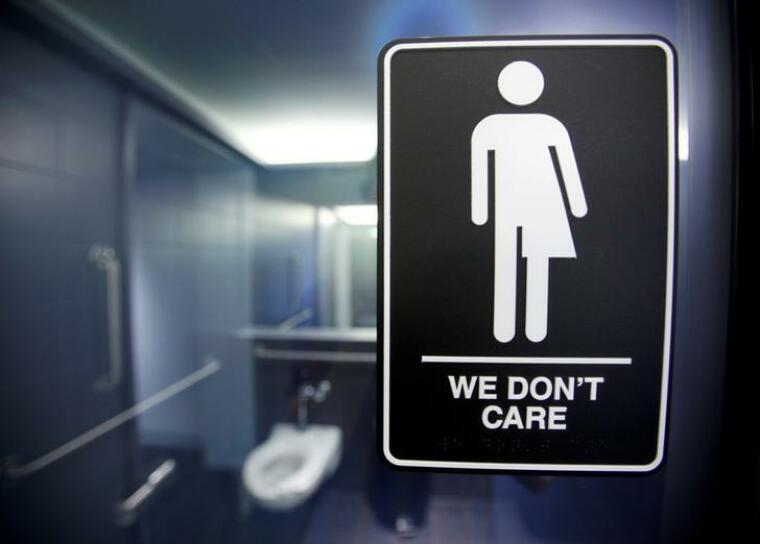Backlash against North Carolina's bathroom bill barely impacted economy

North Carolina Lt. Gov. Dan Forrest has said that the state's economy is doing "extremely well" despite the backlash it received from businesses, sports organizations and entertainers over its controversial transgender bathroom law known as HB 2.
Since the bathroom bill was passed last March, several businesses have withdrawn plans to expand to the state while sports organizations and entertainers have either canceled events or moved them out of the state. The backlash has propelled critics of HB 2 to proclaim that the law is detrimental to the state's economy.
A study produced by the University of California Los Angeles has suggested that the state could lose over $5 billion in GDP each year over HB 2-related consequences, The Christian Post reported.
However, the state continues to rank as one of the top states for businesses despite the fallout over the law.
North Carolina was rated as the No. 3 best state in the nation for business in a poll of CEO's conducted by Chief Executive Magazine last May. In July, the state was ranked by CNBC as the No. 5 state for business. In November, North Carolina has been ranked the No. 2 state in the nation for business by Forbes as well as Site Selection magazine.
"We are doing extremely well on the economic side and doing all the right things as Republicans to get our economy back in order again," Forest said during a special Family Research Council (FRC) webcast. "We have created hundreds of thousands of new jobs over the last couple of years and businesses are still moving here and people are moving here in record numbers," he continued.
Democrat Gov. Roy Cooper said that it is "urgent" that the state repeal HB 2 because NCAA will be deciding in a few days the venues for championship events for the next six years.
The North Carolina Sports Association (NCSA) has recently said that there have been 133 bids submitted for NCAA championship events between 2018 and 2022, and losing revenue from such events could cost the state an estimated $250 million.
However, Mitch Kokai, a political analyst with the John Locke Foundation, who studied the impact of businesses leaving the state, said on the FRC webcast that the effect of the fallout over HB 2 on the state's overall economy would be minimal.
He noted that North Carolina has a gross domestic product on the state level of about $510 billion. He said that the economic loss from businesses and athletic events withdrawing from the state is "in the hundreds of millions of dollars."
"You are talking about a fraction of a percentage point of gross domestic product of the state," said Kokai.
Last Tuesday, Cooper offered a new proposal to repeal the bathroom bill. He suggested that local governments should be required to give 30 days' notice to the legislature before voting on non-discrimination ordinances and he recommended tougher punishments for crimes committed in bathrooms and changing rooms.
 Christians don't have to affirm transgenderism, but they can’t express that view at work: tribunal
Christians don't have to affirm transgenderism, but they can’t express that view at work: tribunal Archaeology discovery: Medieval Christian prayer beads found on Holy Island
Archaeology discovery: Medieval Christian prayer beads found on Holy Island Presbyterian Church in America votes to leave National Association of Evangelicals
Presbyterian Church in America votes to leave National Association of Evangelicals Over 50 killed in 'vile and satanic' attack at Nigerian church on Pentecost Sunday
Over 50 killed in 'vile and satanic' attack at Nigerian church on Pentecost Sunday Ukrainian Orthodox Church severs ties with Moscow over Patriarch Kirill's support for Putin's war
Ukrainian Orthodox Church severs ties with Moscow over Patriarch Kirill's support for Putin's war Islamic State kills 20 Nigerian Christians as revenge for US airstrike
Islamic State kills 20 Nigerian Christians as revenge for US airstrike Man who served 33 years in prison for murder leads inmates to Christ
Man who served 33 years in prison for murder leads inmates to Christ


 Nigerian student beaten to death, body burned over ‘blasphemous’ WhatsApp message
Nigerian student beaten to death, body burned over ‘blasphemous’ WhatsApp message 'A new low': World reacts after Hong Kong arrests 90-year-old Cardinal Joseph Zen
'A new low': World reacts after Hong Kong arrests 90-year-old Cardinal Joseph Zen Iran sentences Christian man to 10 years in prison for hosting house church worship gathering
Iran sentences Christian man to 10 years in prison for hosting house church worship gathering French Guyana: Pastor shot dead, church set on fire after meeting delegation of Evangelicals
French Guyana: Pastor shot dead, church set on fire after meeting delegation of Evangelicals ‘Talking Jesus’ report finds only 6% of UK adults identify as practicing Christians
‘Talking Jesus’ report finds only 6% of UK adults identify as practicing Christians Mission Eurasia ministry center blown up in Ukraine, hundreds of Bibles destroyed: 'God will provide'
Mission Eurasia ministry center blown up in Ukraine, hundreds of Bibles destroyed: 'God will provide' Church holds service for first time after ISIS desecrated it 8 years ago
Church holds service for first time after ISIS desecrated it 8 years ago Burger King apologizes for 'offensive campaign' using Jesus' words at the Last Supper
Burger King apologizes for 'offensive campaign' using Jesus' words at the Last Supper Uganda: Muslims abduct teacher, burn him inside mosque for praying in Christ’s name
Uganda: Muslims abduct teacher, burn him inside mosque for praying in Christ’s name